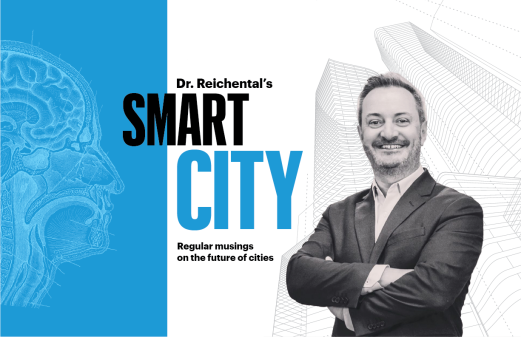How smart cities should include resiliency in their technology

ARLINGTON, Va. — Cities have spent a lot of time thinking about the technology that will make them smarter, but maybe not enough time thinking about how those technologies could help them function in a disaster, a group of federal, local and advocacy thought leaders said.
During a panel session at startup incubator Eastern Foundry as a part of Smart Cities Week, experts from the Department of Homeland Security, the National Science Foundation, the National Institute of Standards and Technology and the Smart Cities Council weighed in on how cities need to think about using their smart city tech to make their cities more resilient.
In the event of a terrorist attack, a natural disaster or another “bad scenario,” Reginald Brothers, the undersecretary for science and technology at DHS, said cities need to consider where their technology fits into their resilience plans. In fact, Brothers suggested that
“How are you going to use these types of technologies to make your cities smarter in a resilient sense?” Brothers said. “How do we look at the big picture? What would you want your city to look like before, during or after the event.”
Brothers encouraged cities take a “strategic” look at the Internet of Things, big data, analytics and cloud computing. In fact, DHS is working with Austin, Texas, to do a test involving the simulated flooding of the lower Colorado River to train first responders on how to interact with a series of sensors and other technologies in a crisis.
David Wollmon, the deputy director of NIST’s smart grid and cyber physical systems effort, encouraged cities to look at the agency’s disaster resilience community planning guide. The agency is also partnering with some other entities to build a framework for smart cities looking to use the Internet of Things.
Indeed a framework might help some cities. Jason Nelson, the executive director for partnerships for the Smart Cities Council said that some cities have been reluctant to embrace some of the common technology used in the private sector — making it hard to truly even make the leap to where cities can use tech to be more resilient.
“These are technologies that exist today but haven’t made the leap in a lot of cities because there are so many stakeholders and complex problems that can mean life and death,” Nelson said. “If the water doesn’t go on, if the heat doesn’t go on, you can be talking about death.”






